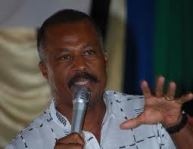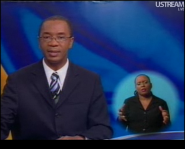The respected Bloomberg posted the headline [13/12/2013] Barbados Debt Higher Than Cyprus Prompts Firing of 3,000. The preamble to the article reads “Barbados will fire 3,000 public sector workers by March and freeze wages as the eastern Caribbean island’s debt burden soars and the International Monetary Fund says “urgent adjustments” are needed.” BU recalls in 2010 the suggestion to government to consider freezing public sector wages was mooted. In fact Minister David Estwick was publicly rapped on the knuckles for making the suggestion. The late Prime Minister David Thompson addressed the matter of wage freeze in his first press conference in 2010 – see Prime Minister David Thompson’s First Press Conference in 2010.
Where we find ourselves, AGAIN will provoke the usual political cackle from participants in the diluted Westminster system of government we practice. In fact, leading political scientists and pundits will rationalize the political cackle as NORMAL, emanating from an adversarial system borrowed from a colonial past. Despite years of investing i education we have given little thought to changing the system of governance which continues to be a polarising force in a 2×3 country given how irrelevant it has become.
The national discussion will now mirror the tenor of the 90s when another DLP administration took the decision to slash public sector wages by 8% and jettison 8,000 public sector employees. Lessons learned you think? ‘Go to the ant thou sluggard…’.
The BU household always focuses on the part of the issue which Barbadians feel uncomfortable. Perhaps it explains why traditional media and prominent people in society read and contribute to BU but with a hushed involvement. This is the hypocrisy which supports a mendicant culture which is no longer relevant in a today’s world. No more preferential treatment from the More Developed Countries (MDCs) and no more lack of competition from the Lesser Developed Countries (LDCs).
The sending home of 3,000 public sector workers is not the solution to the problems which confront Barbados, it is a manifestation of one of many symptoms which ail the nation. If there is one issue where there is consensus, it is that our economy has some deep flaws which must be addressed. Even the head of government’s economic advisory council has publicly admitted this to be the case. It seems to BU this was a good place to have started the discussion regarding a strategic economic approach in 2008. Looking forward, where do we go from here full in recognition that there is no silver bullet?

























You must be logged in to post a comment.